Which Fruits Are Safe for Your Dog to Eat?
Not all fruits are created equal when it comes to nutrition and safety. Learn which fruits are safe for your dog to eat.
Nothing says summer like fresh produce. Sweet, vine-ripened strawberries, mouth-watering melons, and juicy peaches are just a few of the fruits that tempt our tastebuds when the temperatures rise. Many of these summertime favorites can be shared as a healthy treat for your dog, especially if they are prepared correctly. Fruits are often low in calories, provide additional vitamins and minerals, and can even help your dog stay hydrated.
But not all fruits are created equal when it comes to nutrition and safety. In fact, some are downright dangerous. Read on to see which fruits your dog can eat. Are your favorites a “Yay,” a “Nay,” or somewhere in between for your furry family members? Even for safe fruits, remember to wash them well before sharing with your pet!
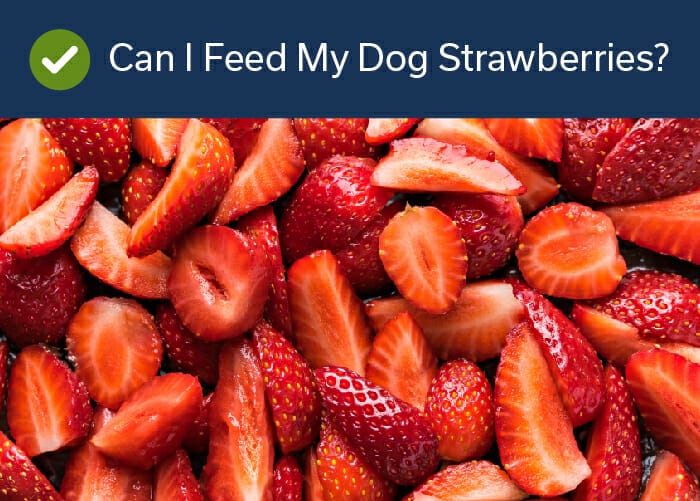
Can I Feed My Dog Strawberries? – Yes
Strawberries are high in fiber and vitamin C, and they are full of antioxidants. There’s even an enzyme in them that can help whiten your dog’s teeth! However, they are higher in sugar so they should be given in moderation. Make sure you wash them, remove the stems, and cut them into smaller pieces.
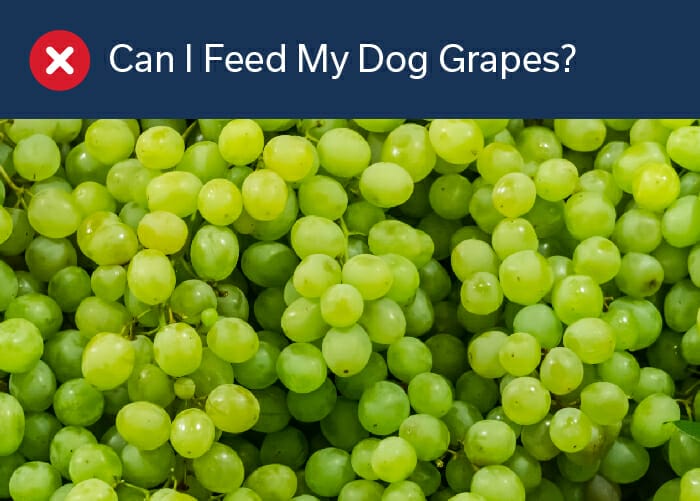
Can I Feed My Dog Grapes? – No
Grapes, and raisins, are at the top of the “do not feed list.” Although research has yet to determine the exact substance in grapes and raisins that is dangerous to dogs, they are extremely toxic. Ingesting grapes and raisins can lead to acute, sudden kidney failure. If your dog eats grapes or raisins, you should contact your veterinarian immediately or head to your nearest emergency veterinarian.
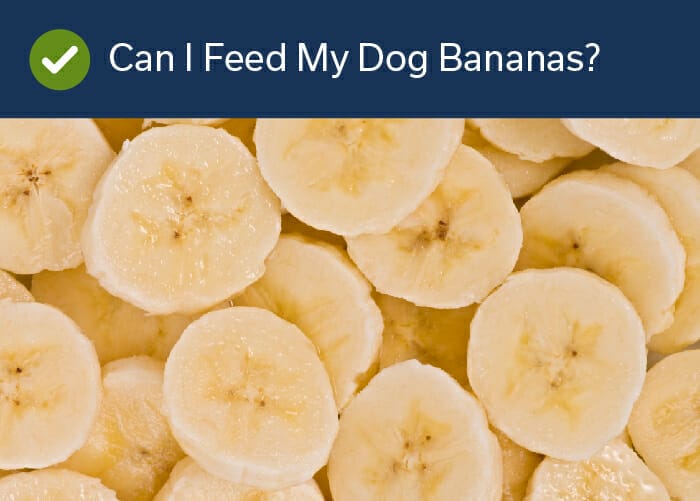
Can I Feed My Dog Bananas? – Yes
Bananas are high in potassium, biotin, fiber, and copper. And they’re low in calories, cholesterol, and sodium. This makes them an excellent treat for your dog. Like many other fruits, they are higher in sugar, so don’t share too many slices. And you’ll want to watch out for the peel as that is not digestible and can cause an obstruction. But feel free to peel it, slice it, and share it! You can even try freezing some banana slices for a cool treat.

Can I Feed My Dog Fresh Peaches? – With caution
Peaches are a summer favorite. The fruit is high in fiber and vitamin A, and peaches can help fight infections. The fleshy fruit is fine to share, but you’ll want to remove the pit and dispose of it safely. Peach pits contain cyanide which would be toxic to your dog if ingested.
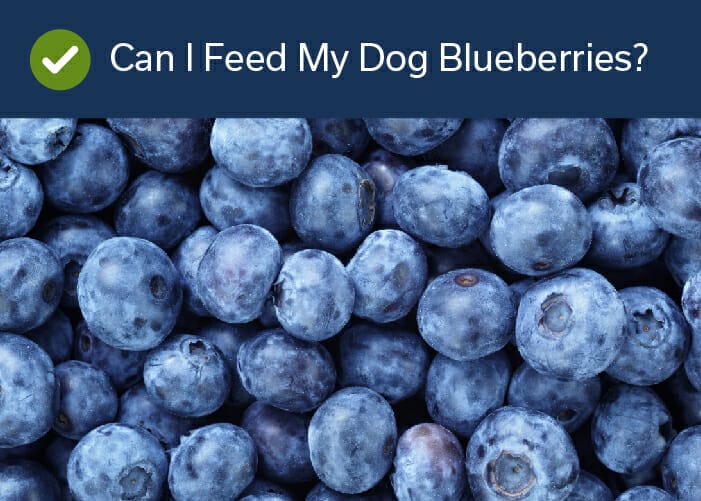
Can I Feed My Dog Blueberries? – Yes
Blueberries are a superfood and are filled with fiber and antioxidants that help prevent cell damage and strengthen the immune system. Their small size and low-calorie content make them a great substitute for dog biscuits or store-bought treats when you are training your dog.
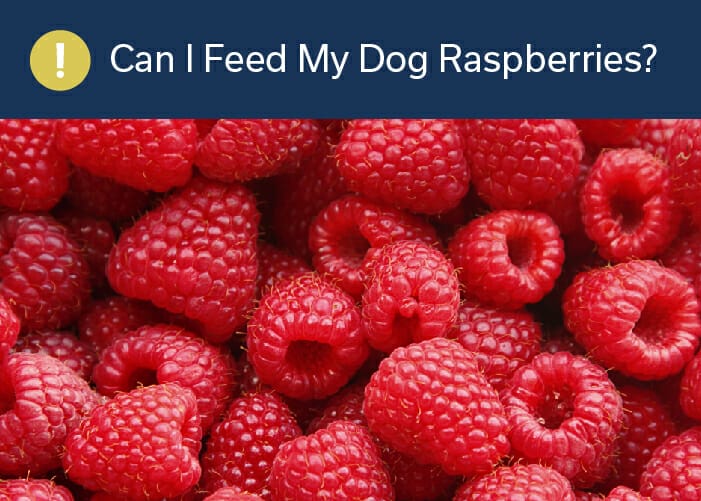
Can I Feed My Dog Raspberries? – With caution
For humans, the benefits of berries are well known, and those benefits can extend to our pups as well. Raspberries are lower in sugar and calories and high in fiber and a variety of vitamins and minerals. They also have anti-inflammatory properties that are good for aging joints in older dogs or those with arthritis. However, raspberries do have a small amount of naturally occurring xylitol which would be dangerous to your dog in larger quantities. So, the key to sharing raspberries safely is to do it in small amounts.
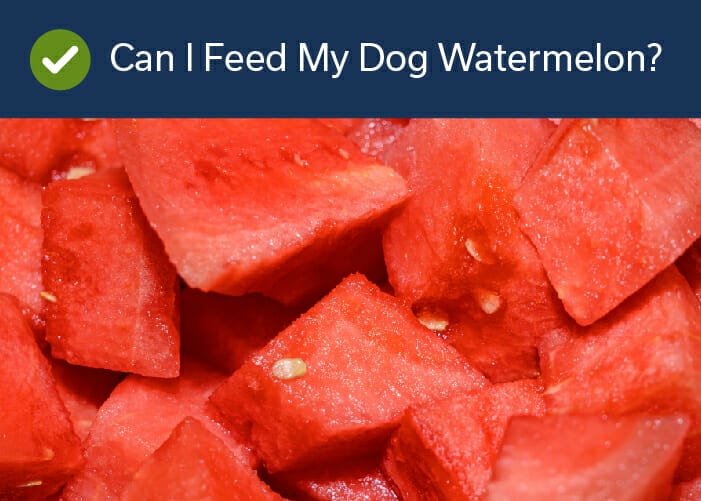
Can I Feed My Dog Watermelon? – Yes
Watermelon is 92% water so it’s a great treat to help keep your pet hydrated. It also has low calories, no fat or cholesterol, and is high in potassium and vitamins A, B6, and C. To make sure it’s a safe treat for your pup, be sure to remove the seeds and rind and only share the fleshy fruit. The rind and seeds can cause intestinal blockages if ingested. You can also freeze small chunks of watermelon to make an extra special treat for a hot day.
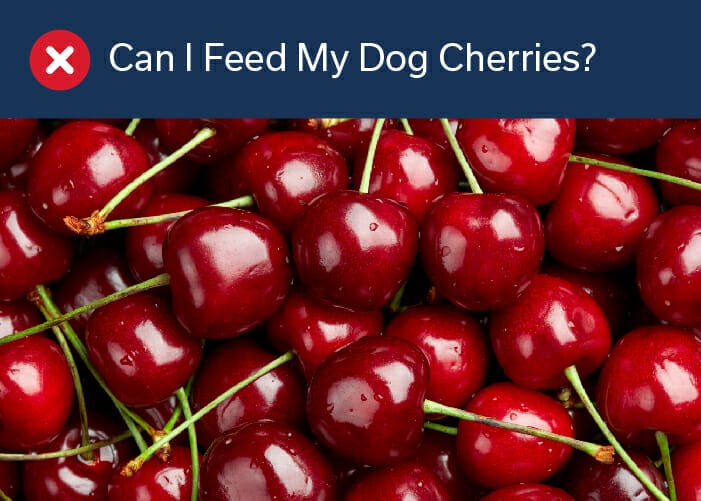
Can I Feed My Dog Cherries? – No
Although the fleshy fruit itself is safe for pups, the plant itself and the pit contain cyanide. Cyanide disrupts delivery of oxygen to the cells and is toxic if ingested. Because of their small size, separating the fruit from the pit is difficult so it’s best to steer clear of sharing cherries. Signs of cyanide poisoning include dilated pupils, difficulty breathing, and red gums.
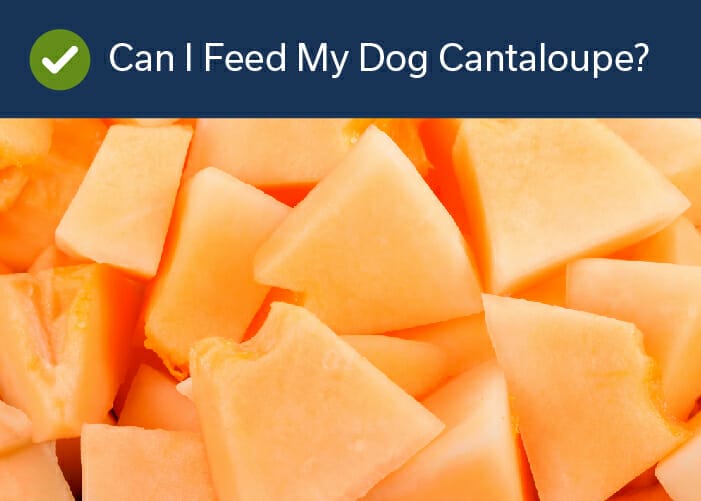
Can I Feed My Dog Cantaloupe? – Yes
Cantaloupe offers nutrients like vitamins A, B6, and C as well as niacin, folate, and potassium. It’s also low in calories but high in fiber and water content. The higher water content makes it a good treat to help with hydration. Cantaloupe is a bit higher in sugar, so moderation is key for sharing, and it may not be a good choice for diabetic dogs. Only the flesh should be shared. The cantaloupe rind is not digestible and could cause a blockage, so you’ll want to remove the fruit from the rind, scoop out the seeds, and cut the fruit into smaller pieces.
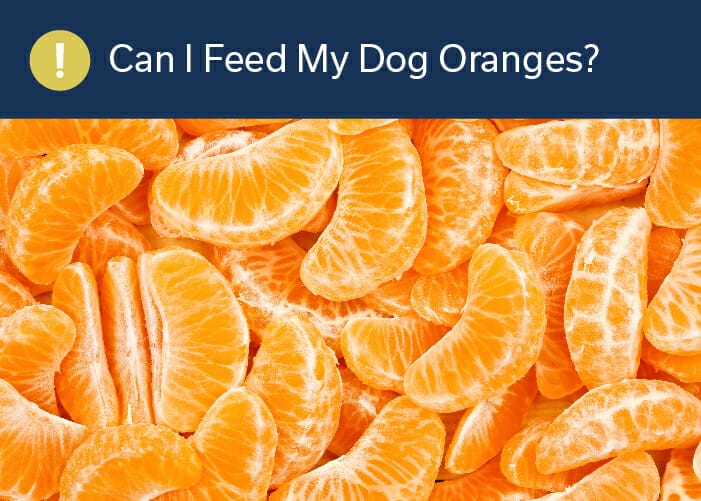
Can I Feed My Dog Oranges? – With Caution
In general, the fruit itself is not dangerous for your dog, but the citric acid in the leaves, peel, seeds, and stem can be rough on the digestive system. Oranges are a great source of vitamin C along with a host of other antioxidants, but they also have a stronger, bitter taste your pup might not like. Their high sugar and acid content can lead to a minor upset stomach or other gastrointestinal problems.
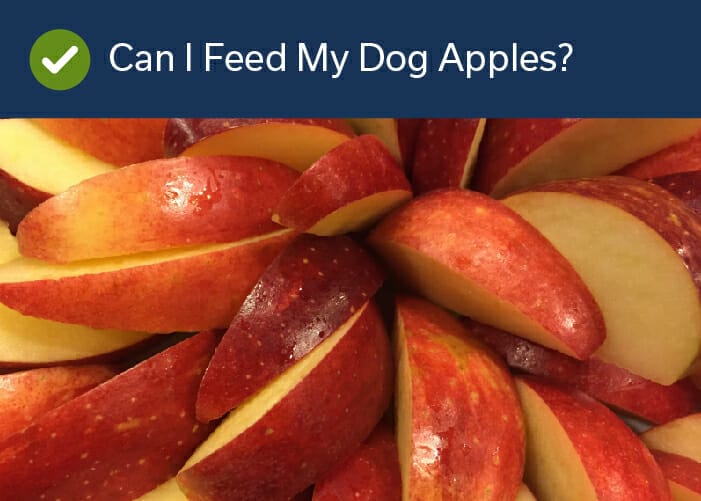
Can I Feed My Dog Apples? – Yes
Apples are high in fiber, low in fat, and provide vitamins A and C. Fiber promotes healthy digestion just like it does for humans. Make sure to remove the core, seeds, stems, and any leaves since those could be a choking hazard or cause an obstruction. Be sure to wash it thoroughly to remove any residue from pesticides, or better yet, remove the skin!
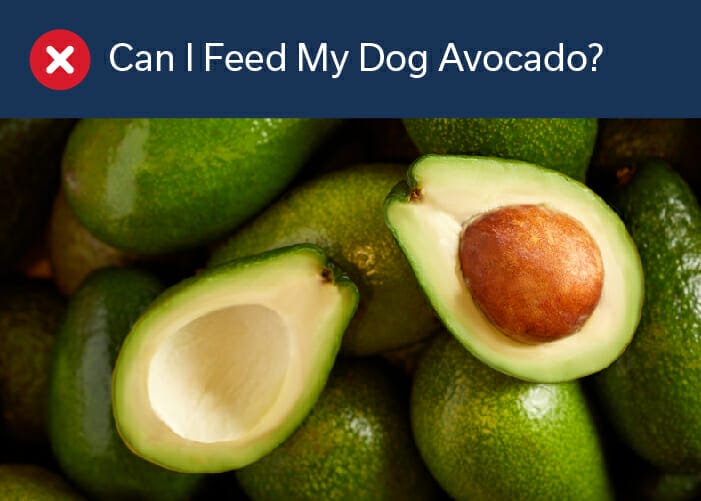
Can I Feed My Dog Avocado? – No
The pit, skin, and leaves of an avocado contain Persin which causes vomiting and diarrhea in dogs. Although the fleshy fruit doesn’t have as much Persin in it, there are still trace amounts so in general it’s safer to keep this one away from your pup.
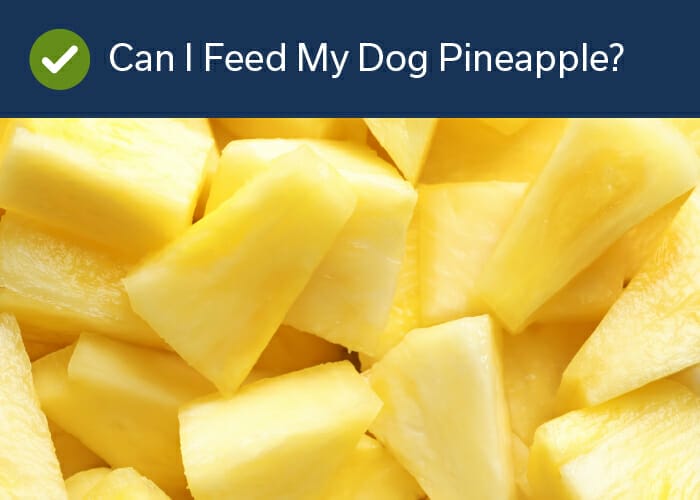
Can I Feed My Dog Pineapple? – Yes
Pineapples deliver on vitamins, minerals, and fiber. They also contain bromelain, an enzyme that makes it easier for dogs to absorb proteins. Make sure to give your dog just the fleshy fruit and dispose of the outside skin, core, and crown. Avoid canned pineapple which can be high in sugar.
Share All Fruits in Moderation
Every dog’s nutritional needs vary based on their age, weight, activity level, and any medical conditions. It’s best to talk with your family veterinarian to determine the amount of fresh fruits or vegetables that are good for your dog. Human foods, even healthy fruits, should still be provided in moderation. Many fruits have higher sugar content which makes it even more important to watch the amount being shared, especially with an overweight dog or one with diabetes. And be sure to only introduce one new food at a time and observe your pet for any negative reactions.
We have a handy resource that you can print and hang on your refrigerator as a reminder of the fruits your dog can eat.
If your dog gets ahold of the fruits that are not safe, contact your veterinarian right away or visit your nearest MedVet.
Sources:
- https://www.akc.org/expert-advice/nutrition/fruits-vegetables-dogs-can-and-cant-eat/
- https://be.chewy.com/13-best-fruits-for-dogs-to-eat/
- https://trupanion.com/pet-care/fruits-and-veggies-for-pets
- https://www.aspca.org/pet-care/animal-poison-control/people-foods-avoid-feeding-your-pets#:~:text=Although%20the%20toxic%20substance%20within,grapes%20and%20raisins%20to%20dogs.
- https://www.petmd.com/dog/nutrition/evr_multi_healthy_snacks
- https://www.southernliving.com/culture/pets/can-dogs-eat-strawberries
- https://www.akc.org/expert-advice/nutrition/can-dogs-eat-avocado/#:~:text=The%20answer%20is%20yes%20and,even%20death%20%E2%80%94%20in%20many%20animals.&text=Persin%20is%20present%20in%20the,potentially%20poisonous%20to%20your%20dog.
- https://trupanion.com/pet-care/can-dogs-eat-avocado
- https://www.thesprucepets.com/can-dogs-eat-oranges-4801867
- https://www.akc.org/expert-advice/nutrition/can-dogs-eat-pineapple/#:~:text=Yes.,dogs’%20digestive%20tracts%20to%20handle.
- https://www.akc.org/expert-advice/nutrition/can-dogs-have-cherries/
- https://www.akc.org/expert-advice/nutrition/can-dogs-eat-oranges/
- https://www.akc.org/expert-advice/nutrition/can-my-dog-eat-raspberries/
- https://www.hillspet.com/dog-care/nutrition-feeding/can-dogs-eat-watermelon
FAQs
Contents

